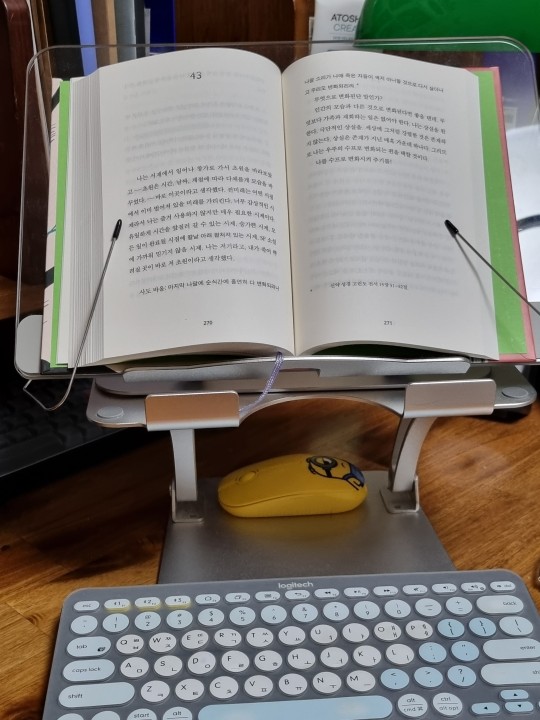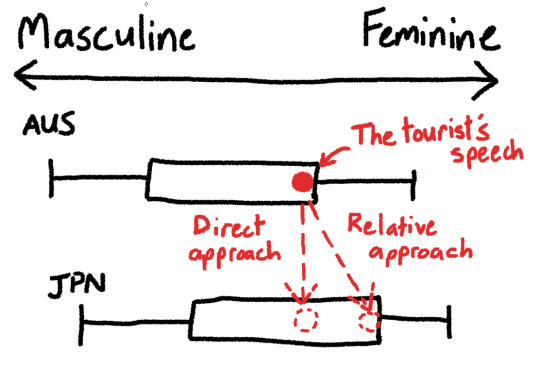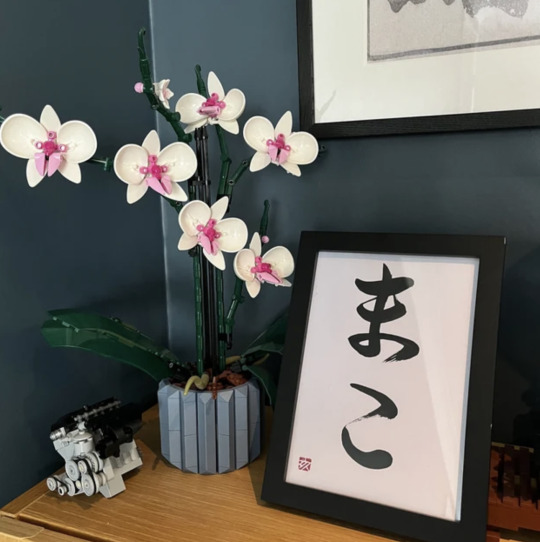Note
because i follow ur main
hey, thank you so much! and sorry. my main blog is SUCH a mess.
0 notes
Text
I've seen a lot of "gifted kid burnout" posts and also a few "where do we go to post studyblr stuff when we're bad students and don't get good grades" so I'm here to talk about my own experience of "I've never been a gifted kid and I've never been a good student".
I'm not a gifted kid. In fact, there was no "gifted kid" system in my country at all. And instead of multiple choice questions or true or false questions, we had to memorize pages and pages of our textbook and write them down during three hour exams. You can't get "a" and "the" wrong or you lose points, that's how much memorization we had to do. We didn't get electives until our last two years of high school and the electives were "biology or economics?" Yeah, those were the only two. Even at my university, I didn't get to choose my own electives. Everything came in a neat little box that you can never escape. And we never, EVER get full marks in Burmese or English. 80 out of 100 is considered phenomenal and no one's ever gotten more than 82 in either subject. So our matriculation exam's full mark is 600 but the most you can get is 550.
Suffice to say, the education system sucked and I don't like memorization so my grades were 50% at most. I failed my math and physic classes with 28 marks out of 100 for a whole two years, only barely passing on midterms and end of year exams. For my matriculation exam I got 340 out of 600, which is SUBPAR. That's 2.0 GPA btw. I never thought of myself as educated or a good student and I still don't.
But I love languages and I realize that while languages seem hard to learn and have strict rules, they actually don't. You can move them around and learn them however you like. So as an avid reader, I started learning languages so that I will be able to read books in those languages and I found studying liberating. Why not? I'm no longer memorizing 600 pages of text book and writing them down.
I realize that I love learning and studying when I get to choose what I learn. So I stopped caring about grades and started learning things that I love. Hey, do you know what's the biggest side effect of learning things that you love and not caring about grades? It's that you actually start to learn and your grades start to come up. I realize I perform badly when I am stressing out about my grades. This is why you're seeing all my 100% grade and 80% grade all over my walls. It's not because I'm a good student. It's because I've let go of the notion that I HAVE to be a good student.
I can talk about my bad grades as freely as I can talk about my good grades. I can tell you that I've been learning Japanese for ten seven years and I'm only JLPT N3 level. Honestly, you know what? As a generation, we're due to appreciate our process and progress instead of our achievements. It's fine if you're a bad student. It's fine if you are a gifted kid who fell off the wagon. It's fine if you've never been a gifted kid or a bad student. What matters is you're here studying and learning and appreciating yourself for doing all that.
So post your good grades, post your bad grades. Post your good stuff and bad stuff and messy notes. Post about your good days and your bad days. Talk about your productive days and talk about your rest days. Keep going and keep learning!
#studyblr#langblr#spanish#100 days of productivity#chinese language#japanese language#chinese studyblr#chinese langblr#japanese studyblr#korean language#korean studyblr
29 notes
·
View notes
Text
Anonymously tell me why you follow me
22K notes
·
View notes
Text
where's the studyblr community for bad students. where do i go to post about my overdue assignments and bad grades and messy work environment
537 notes
·
View notes
Text
Hi ! :D
I'm a first year french linguistics student and I made this blog to find other languages nerds like me, find interesting bits of data and infos about linguistics AND also compile said infos to motivate myself to study.
Languages I'm studying:
English (C1)
French (fluent)
Italian (B2)
Chinese (A1)
Korean (A2)
i am also interested in Vietnamese, Thai, Esperanto and Corsican but for the sake of my ADHD it's only interest for now 😩
-> I'm a really curious person so please if you want to chat with me about languages or even better your (or of your) languages do so !
Anyways, welcome !

26 notes
·
View notes
Text


58/100 days of productivity
Finished my midterms! Yay! I got 80% for Health Psychology but I have no hopes for my Worldview Studies exam lmao.
I'm still trying to rest and recover from my cervical spondylosis flare up... it's going. Not well, but it's going.
#studyblr#langblr#100 days of productivity#health psychology#worldview studies#hgu unitwin#unitwin#handong global university#chronic pain#chronic illness#cervical spondylosis#bookblr
3 notes
·
View notes
Note
I hope I'm not being rude but how did you have the time to do everything on your bio when you're only 24? Can you share how you learnt a lot of languages?
It's fine. Believe it or not, people ask me that A LOT.
I'm born in Myanmar and only spoke Burmese until I was 10 and my mom decided her children should be able to speak English. She sent me and my sibling to an English Summer School and then started speaking English at home. I've been bilingual since then. Burmese people are very good at English (read: we were colonized by the British) I started learning Chinese at age 12, I think. Then at age 14 and 15, while writing novels and fanfictions, I taught myself how to read hanguel (korean script) and hiragana/katakana (japanese script) then started studying formally after graduating highschool.
In Myanmar, until a few years ago, high school students used to graduate at age 16 and go to the university. So when I graduated high school, I went the distance education route in University and became a freelance translator and interpreter. I also did some transcribing and content writing. Then I went to Korea and studied in a language program. I came back after nine months and at age 19 I just started taking things seriously and self studied everything to pass all the language certification exams.
In 2021, because of the military coup, I dropped out of high school, realized my freelance translator job is not really going well due to the dictatorship, so I started to branch out. Now I read tarot and interpret astrological birth charts, teach classes and tutor people, sell books and ebooks. That's just how freelancing is. I think.
Anyways, all these things seem a lot until you realize I just spent a decade of my life just doing things I want. A lot of people tried discouraging me of course They're always like "choose a language!" "choose a path!" but I just don't like to listen to people. Hopefully, a few more decades and I might become a jack of all trades. And learn a few more languages. And read a few more books. And get into a few more hobbies. Yeah.
11 notes
·
View notes
Note
Hey i know burmese is your native language but do you have any resources on where I could learn it?
I've been sitting on this for a while because I know there aren't a lot of good resources for Burmese. Look, if you want to learn Burmese, you should get books by John Okell. He's a very famous expert linguist in Burma Studies and his books are so good. I'm reading one of his books on Burmese Grammar and it's very good.
I should point out that there's a significant barrier to learning Burmese that everyone faces is that WE DON'T HAVE GOOD RESOURCES. The Burmese movies and songs are shitty at best, and they're so unnatural that people learning Burmese will never benefit from that. But our literature is so good. So I suggest if you're just learning for fun, you should start learning consonants and vowels and throw yourself into reading and writing. Only a burmese tutor will be able to properly teach you listening and speaking. If you know Thai, Korean, Japanese or Chinese, they do have Burmese language books made for their people but English resources, with the exception of John Orkell's books, are pretty useless by now because no one is updating them.
Gotta say, wikipedia page about Burmese language is a VERY good one. I go and read that page from time to time just because it's so fascinating. You can start there!
6 notes
·
View notes
Text

Osaka at night.
#why do those lanterns say “Hormone#never mind I looked it up and grilled beef/pork entrails are called that in japan#japan#japanese language#japanese#japanese langblr#japanese studyblr
157 notes
·
View notes
Text
Reblog if youre any active studyblr in 2024
Reblog so i can find my people!!
401 notes
·
View notes
Text


20.04.2024 [🙂]
🌜: 지금 할 일을 하자/ Finish studying for TOEIC
78 notes
·
View notes
Text


18.04.2024 [😚]
🍨: 박물관 갔다 카페 다녀오기/ There are so many books to read
137 notes
·
View notes
Text
I’ve been having trouble putting this idea into words so you’ll have to bear with me, but I was struck when I saw a Japanese news program interviewing foreign tourists in Japan, and some australian women were dubbed over with a stereotypically feminine speech register (lots of のs and わs), and my first thought was “they weren’t speaking that femininely in english”.
A friend of mine from the UK recently mentioned that he noticed that australia has a generally more masculine culture than england - he felt that everyone is a bit more masculine here, including women. This kind of confirmed to me that my impressions of the dubbing were right - the tourists were speaking in a relatively (internationally) more masculine way. Yet their dub made them sound so much more feminine.
It made me wonder. When translating something, do you translate the manner of speaking “directly”, or “relatively” in terms of cultural norms? Maybe this graph will help me explain the question.

A direct appoach in this case might appear to a Japanese person to result in an unexpectedly masculine register, but preserves how the speaker's cultural upbringing has influenced their speech.
The news program translators chose the relative approach - I think I would prefer the direct approach. I think I prefer it because I believe translation should be a rewriting of the original utterance as if the speaker was originally speaking the target language, and the direct approach compliments that way of thinking the best.
Actually now that I type that, I’m second guessing myself. Does it? It does, if for the purposes of the “rewrite it as if they spoke japanese” thought experiment, we suppose the speaker magically learned japanese seconds before making the utterance, but what if we suppose the speaker magically grew up learning japanese - then maybe they would conform to the relative cultural values. But also, maybe they would never have said such a thing in the first place - their original utterance was informed by their upbringing and cultural values, so how could you possibly know what they would have said if they had known japanese from birth? Maybe my initial instinct was right after all?
If you work in translation, I’m very interested to hear if you have come across this problem and how you deal with it 🙏
Further reading: I think this question also ties into this problem I’ve been struggling to answer for a while.
638 notes
·
View notes
Text
Branch Runes
Cipher:
left branches of the tree stand for the row
right branches of the tree stand for the column


#VERY FUCKING COOL#runes#runic#futhark#younger futhark#norse#norse paganism#heathen#heathenry#cryptography#calligraphy
45 notes
·
View notes
Text
まこ "Mako"

(image by client)
I was very honoured to receive a commission to create this artwork. "Mako" is the name of the client's beloved cat.
I love cats >^^<
The name "Mako" is the nickname of the Japanese actor Makoto Iwamatsu. Because it is a Japanese name, I decided to render it in hiragana.
Hiragana is one of Japan's three writing systems. It contains about 50 elegant, round characters, and is a syllabary, meaning that each character represents a phonetic sound rather than (in the case of kanji) a meaning.
Hiragana is used for:
Short versions of names (such as "Mako" above).
2. Writing a word that you have forgotten the kanji for (common with children and foreigners!).
For example, "cat" in kanji is 猫. You can also write it phonetically in hiragana: ねこ.
3. Verb conjugations. The kanji represents the verb, and the hiragana that comes after it changes depending on whether it's affirmative, negative, present tense, past tense, etc.
Example:
食べる = eat (present/future)
食べた = ate (past)
(食 is the kanji for "to eat", and the characters after it are hiragana).
4. Adjective conjugations. In Japanese, adjectives conjugate too, in a similar way to verbs.
If you're interested in owning your own custom-made calligraphy artwork, please feel free to get in touch. More details here.
#japanese language#japan#japanese culture#書道#japanese#japanese calligraphy#japanese art#calligraphy#kanji#japanese langblr
23 notes
·
View notes
Text
The difference between あのー and えーっと
As I touched on in my japanese goncharov post, it’s amazing how much novel research, entertainment, and art are locked behind a language barrier. Even though as english speakers, we are privileged to have many things translated into our language, it’s a simple fact that most things will not be translated into most languages.
I am a huge fan of ゆる言語学ラジオ, a japanese podcast about linguistics. The hosts recently released a book, 言語沼, which goes into detail about some of the subconscious rules native japanese speakers follow but aren’t consciously aware of (an english equivalent might be that adjective-ordering rule we follow e.g. big brown cow, not brown big cow). I’m finding it fascinating, and I wanted to discuss some of it here in english, because I think people learning japanese would find some of these things really useful. It’d be a shame if this knowledge stayed stuck behind the japanese language barrier when the people who would find it the most useful can’t speak japanese fluently enough to read it!
The book talks about how most Japanese people will think of 「あのー」 and 「えーっと」 as having the exact same meaning - they’re both “meaningless” filler words. Despite their belief that they’re the same, those same native speakers will subconsciously only use あのー in one particular type of situation and 「えーっと」 in another, and even feel confused or annoyed if they hear another speaker use one in the wrong context.
So what’s the actual difference? 「えーっと」 is used when the speaker is taking time to remember or solve something. For example, the following exchange is very natural:
Person A: 7 x 5は?
Person B: えーっと、35だ
This makes it a pretty versatile filler word! You can use it pretty much anywhere. Another example would be when you’re talking to yourself, trying to remember where you left your keys.
えーっと、鍵どこ置いたっけ?
On the other hand, あのー is much more specific. It can only be used when you’re taking time to figure out the best way to phrase something. For example, when you’re trying to get a stranger’s attention.
あのー、ちょっといいですか?
In contrast, if Person A was addressed with 「えーっと、ちょっといいですか?」by Person B, they’d feel it was rude because instead of considering how to say something, B is considering what to say, which gives the impression that they hadn’t even figured out what they needed to ask before addressing Person A.
This gives 「あのー」 a more ”polite” feeling than 「えーっと」, even though neither is actually more polite than the other. They’re just used in different circumstances.
Let’s quickly look at the example with the lost keys again. If you replace the filler word:
あのー、鍵どこ置いたっけ?
It is very unnatural. The authors of the book jokingly say that it sounds like you’re talking to a ghost, because 「あのー」 is only used when you’re figuring out how to phrase something, and you wouldn’t worry about that if you’re talking to yourself.
Also, did you know even japanese children properly use each filler word in the correct situation? Despite almost all japanese people (even as adults) being unaware of this rule, they’re subconsciously abiding by it even as children - just from listening to their parents follow the same rules!
It really is amazing how good your subconscious mind is at acquiring language, and how terrible your conscious mind is at it. If you’re not already, I highly recommend integrating a lot of simple language content (e.g. youtube, kids shows, etc) into your study routine - listening to people talk is simply the fastest way to become fluent in your target language.
255 notes
·
View notes
